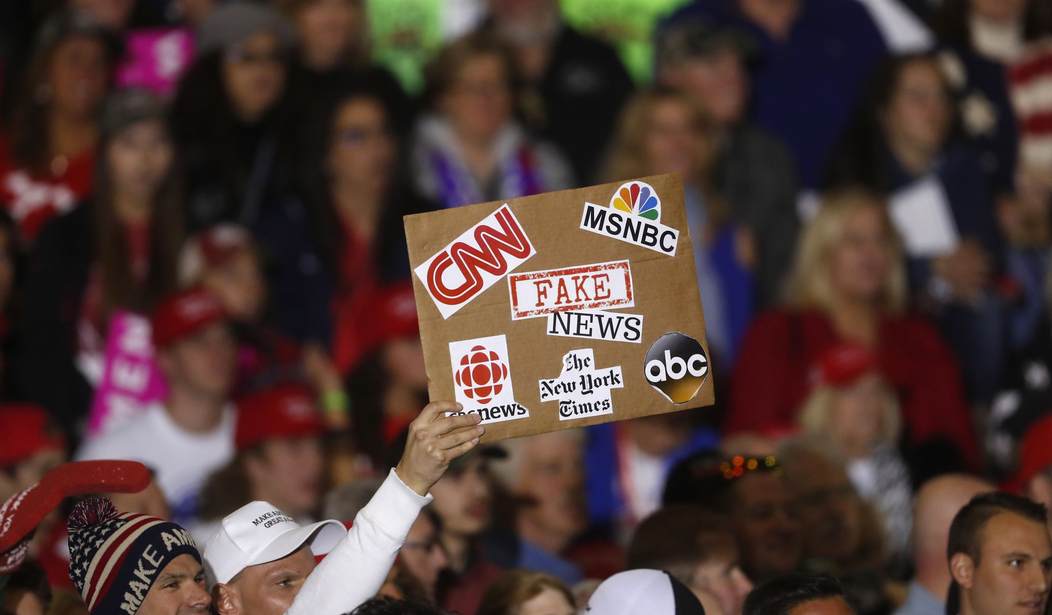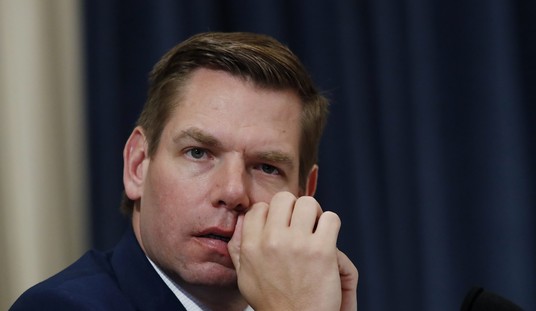It has been fascinating over the last few weeks to watch how our overlords in the mainstream media have absolutely tied themselves into frenzied knots over, among other things, podcaster Joe Rogan’s continued defiance and newsletter platform Substack’s ongoing commitment to not censor the content posted by their users just because one of our supposed Intellectual Betters on the left takes issue with it.
In my opinion, the culmination of the media knot-twisting over their inability to intimidate people like Rogan and commentary websites like Substack came on Monday when CNN media hall monitor Brian Stelter, a proven purveyor of misinformation on so many levels, expressed “concern” over the fact that more people seem to trust commentators like Rogan than they do “news” outlets like CNN. For those who missed the segment, here’s what he said:
CNN’s @brianstelter: People trusting Joe Rogan over “newsrooms like CNN” are “a problem that’s much bigger than Spotify” pic.twitter.com/3RnifScIzk
— Tom Elliott (@tomselliott) February 1, 2022
What’s really “at the heart of this right now,” which Stelter of course will not mention is that despite their best efforts, the mainstream media has lost control of the narrative. That’s terrifying for them at any given point in time, but especially during an election year, which is when we see the press kick into full-blown “protect the Democrat” mode, as they’re doing now with Joe Biden as his approval numbers plummet.
Let’s think for a moment about the incestuous relationship between the media, fact-checkers, and social media platforms like Facebook and Twitter. Because the media knows that trust in them is at an all-time low thanks to their continued push of fake news “stories” like the Russia collusion hoax and knows that people are turning to alternative sources for information, they bring in “fact-checkers” to work hand in hand with social media sites to combat alleged “misinformation” from those sites. Their philosophy is “hey, okay, you don’t trust us, but you can trust fact-checkers because they don’t pick sides.”
Except they absolutely do pick sides, as we’ve documented here extensively. From Stelter’s “fact-checker” colleague Daniel Dale, to WaPo “fact-checker” Glenn Kessler, to Politifact, and so on, they all have similar narratives to push that the media does, and from what I’ve seen they operate from that same “protect the Democrat/bash the Republican” mindset.
So what happens when the media realizes that not only do people not trust reporters but they also don’t trust fact-checkers, either, because both have shown a tendency to skew their reports due to political considerations? The media themselves, like Stelter, then begin to put public pressure on platforms like Spotify to pull content. Stelter types will then lavish praise on users of such platforms (like Neil Young) who virtue signal by voluntarily having their content removed in solidarity with established media/government narratives.
But these efforts, too, won’t go over well with most people (including even some diehard leftists like Bill Maher) because they’ve seen over the last two years of the coronavirus pandemic here how often what we’re told one day is “dangerous misinformation” ends up being found to either have merit or be correct months later.
One example of this is Sen. Tom Cotton’s insistence from the early days of the pandemic that the origins of COVID-19 might actually be connected more to a Wuhan lab than a Chinese wet market. Cotton was painted as a dangerous fruitcake by the press and Democrats, but a year or so later, outlets like the Washington Post were “updating” their old pieces on Cotton’s claims to note that it wasn’t actually conspiracy theory and that his claims may have some basis in fact.
That has happened over and over again, with too many instances to list in one post. And though the media and “fact-checkers” eventually get around to updating their information to note what they said was wrong might actually be right after all, the damage has already been done – not just to the public trust and media institutions but also to the people who have made the claims who got dragged/banned/canceled by the so-called “experts” trotted out by the press.
Something else Stelter and his ilk won’t mention is that in preferring to listen to people like Joe Rogan over blowhards like Don Lemon, it’s not so much the case that they necessarily “trust” Rogan. What they are hungry for are different points of view, which they don’t get much of at places like CNN and MSNBC. As it turns out, people like listening to a variety of voices so they can form their own opinions rather than being spoon-fed opinions from people like Brian Stelter who are supposed to be objective reporters but at the end of the day come off like American versions of Baghdad Bob.
That more people are turning away from traditional sources of “news” is absolutely a good thing in this toxic climate where so-called “journalists” who have been entrusted with holding the government accountable turn out more often than not to be mouthpieces for that same government, to the exclusion of alternative points of view. As my colleague streiff observed in a recent piece:
It shows that critical thinking is alive and well in America. It shows that, as a nation, we aren’t willing to believe what the media power structure tells us without question. The day when more people believe Brian Stelter than any other random person on social media will be the day from which we can start the countdown to our national collapse.
‘Nuff said.
Related: PBS ‘Reporter’s’ Obscene Gushing Over Biden Presser Raises Big Questions After Ron Klain Promotes















Join the conversation as a VIP Member